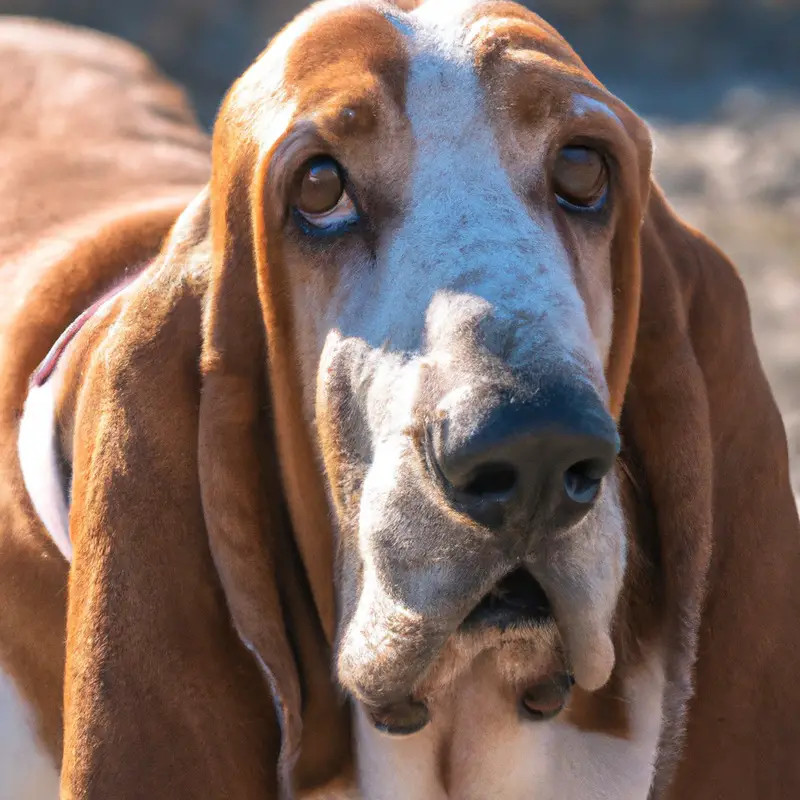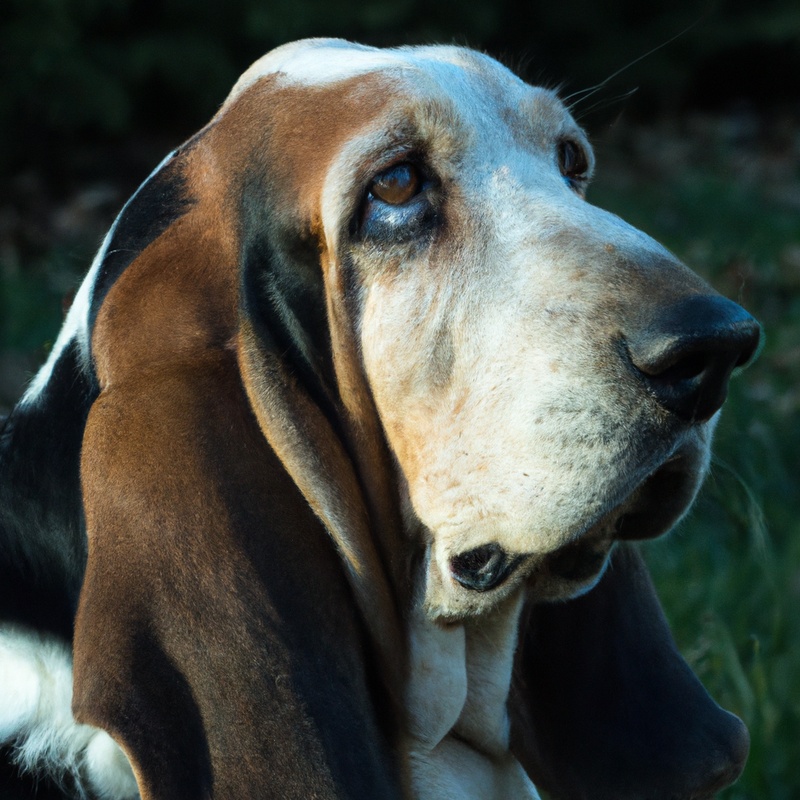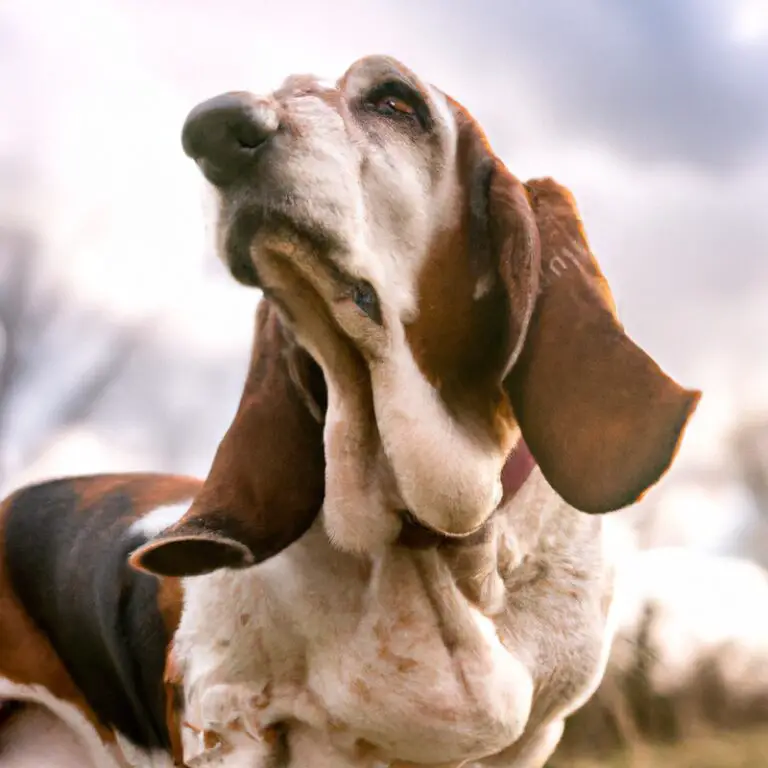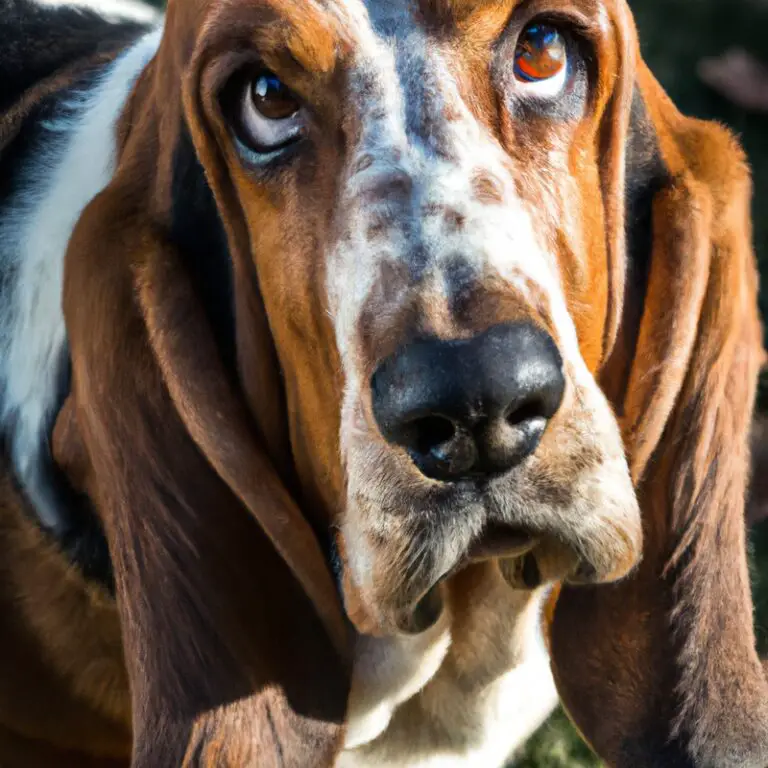How Do Basset Hounds React To Being Left Alone For Short Periods?
Key Takeaways:
- Basset Hounds may experience separation anxiety when left alone for short periods.
- They may exhibit various signs of distress, including excessive barking or howling.
- Providing mental enrichment and establishing a routine can help alleviate their anxiety.
- Training and gradual desensitization can help Basset Hounds adjust to being alone.
Hey there! Have you ever wondered how your Basset Hound feels when you leave them alone, even for just a short period of time?
As a dog lover and expert, I’ve had the pleasure of studying their behavior and understanding their unique temperament.
Basset Hounds are known for their sociable and affectionate nature, thriving on companionship.
But what happens when you have to step out?
In this article, I’ll delve into the impact of separation anxiety, signs of distress, strategies to keep your Basset Hound calm, and how to gradually increase their alone time.
So, let’s dig in and make sure your furry friend feels safe and secure even when they are home alone!
| How Basset Hounds React to Being Left Alone for Short Periods | |
|---|---|
| Breed | Basset Hound |
| Behavior | Dependent and sociable breed |
| Separation Anxiety | May experience separation anxiety |
| Reactions |
|
| Training |
|
Understanding the Basset Hound’s temperament
Basset Hounds and their sociable nature
Basset Hounds are known for their sociable nature.
They are friendly, affectionate, and love being around their human family members.
These dogs thrive on companionship and enjoy being part of the family activities.
Basset Hounds are excellent with children and get along well with other pets.
They are often described as gentle, patient, and easygoing.
Basset Hounds have a loving and loyal temperament, making them ideal companions for those seeking a sociable and friendly pet.
The importance of companionship for Basset Hounds
Basset Hounds are known for their sociable nature and thrive on companionship.
Having consistent human or animal interaction is essential for their well-being.
These dogs form strong bonds with their owners and can become anxious or depressed if left alone for extended periods.
Companionship helps prevent feelings of loneliness and isolation, promoting a happier and healthier Basset Hound.
Spending quality time with your Basset Hound, providing playtime, exercise, and including them in daily activities will ensure they feel loved and fulfilled.

Leaving a Basset Hound alone for short periods
The impact of separation anxiety
Separation anxiety can have a significant impact on Basset Hounds. It is a condition where they become distressed and anxious when left alone.
Common signs include excessive barking, destructive behavior, and indoor accidents.
This anxiety can negatively affect their overall well-being and quality of life. Basset Hounds are social dogs and thrive on companionship, so being left alone for too long can be particularly challenging for them.
It’s important to address separation anxiety and provide strategies for managing it to ensure the happiness and contentment of your Basset Hound.
Tips for preparing your Basset Hound for alone time
To prepare your Basset Hound for alone time, here are a few tips:
- Start with short intervals: Gradually introduce your Basset Hound to being alone by leaving for short periods and gradually increasing the time. This helps them adjust to the idea of being by themselves.
- Create a safe space: Designate a specific area where your Basset Hound can feel comfortable and secure. Provide cozy bedding, toys, and water to ensure their needs are met during alone time.
- Mental stimulation: Keep your Basset Hound entertained while alone by providing interactive toys, puzzle feeders, or treat-dispensing toys. This helps them stay mentally stimulated and minimizes boredom.
- Positive reinforcement: Reward your Basset Hound for good behavior when they are left alone. Use treats, verbal praise, or a special toy to encourage positive associations with alone time.
- Seek professional help if needed: If your Basset Hound shows signs of severe distress or separation anxiety, consider consulting with a professional trainer or behaviorist. They can provide guidance and support tailored to your dog’s specific needs.

Signs of distress in a Basset Hound left alone
Recognizing behavioral changes
Recognizing behavioral changes in your Basset Hound is crucial when it comes to understanding their well-being. Some common signs of distress when left alone include excessive barking or howling, destructive behavior, pacing or restlessness, and even soiling the house.
If your Basset Hound starts displaying these behaviors when left alone, it may indicate stress or anxiety.
Keep an eye out for changes in appetite, weight loss, or excessive drooling as well. Being attentive to these behaviors will help you address any potential issues and provide the necessary support for your beloved furry friend.
Physical signs of stress or anxiety
Physical signs of stress or anxiety in Basset Hounds can be easily observable. Look for these indicators when your Basset Hound is left alone:
- Excessive barking or howling.
- Pacing or restlessness.
- Excessive drooling or panting.
- Changes in appetite or weight.
- Destructive behavior, such as chewing on furniture or objects.
- Excessive scratching or licking.
- Urinating or defecating inside the house, even if they are already house-trained.
Remember, each dog is unique, so they may display different signs of stress or anxiety. It’s important to pay attention to any changes in your Basset Hound’s behavior when they are left alone.
Strategies to keep your Basset Hound calm when alone
Providing a safe and comfortable environment
It’s important to create a safe and comfortable environment for your Basset Hound when they are left alone.
Here are some ways you can achieve this:
- Provide a designated space: Set up a specific area where your Basset Hound can retreat to feel secure. This can be a crate, a cozy corner with their bed, or a gated-off room.
- Minimize potential hazards: Remove any objects that may pose a danger to your Basset Hound, such as small items they could swallow or chew on. Secure electrical cords and keep toxic substances out of reach.
- Ensure temperature control: Make sure the temperature in the room is comfortable for your Basset Hound. Avoid leaving them in spaces that are too hot or cold.
- Create a calming atmosphere: Leave soft background music or white noise to help soothe your Basset Hound. You can also consider using a pheromone diffuser or spray, specifically designed to reduce stress in dogs.
- Provide access to water and toys: Leave fresh water available for your Basset Hound, along with safe and engaging toys to keep them mentally stimulated.
By implementing these strategies, you can help your Basset Hound feel safe, secure, and comfortable while they are alone.
Mental stimulation and interactive toys for entertainment
Mental stimulation is essential to keep your Basset Hound entertained and calm when alone. Interactive toys are a great way to provide this stimulation.
Consider puzzle toys that require your dog to figure out how to get treats or toys out of them.
These toys help keep their minds engaged and can prevent boredom and anxiety. You can also rotate their toys regularly to keep them interested.
Just ensure that the toys are safe and suitable for your Basset Hound’s size and chewing habits.
Gradually increasing alone time for your Basset Hound
Slowly introducing alone time
When slowly introducing alone time for your Basset Hound, start by leaving them for short periods, gradually increasing the duration over time. Begin with just a few minutes and gradually work your way up to longer periods.
This allows your Basset Hound to get used to being alone and builds their confidence.
Make sure to provide a comfortable and safe environment with toys and treats to keep them occupied. If necessary, seek the help of a professional trainer to assist you in this process.
Working with a professional trainer if needed
If you’re struggling to help your Basset Hound adjust to being alone, working with a professional trainer might be a great option.
A professional trainer can assess your dog’s behavior, provide expert guidance, and create a customized training plan to address separation anxiety.
They can teach you techniques to gradually increase your dog’s alone time, help you understand their needs, and provide support throughout the process.
Hiring a professional trainer can be beneficial, as they have the knowledge and experience to guide you and your Basset Hound towards a more comfortable and confident alone time routine.
Seeking professional help for a Basset Hound’s separation anxiety
Identifying severe cases of separation anxiety
Identifying severe cases of separation anxiety in Basset Hounds can be challenging but crucial for their well-being. Look out for extreme reactions like excessive crying, howling, destructive behavior, or self-harm when left alone.
If your Basset Hound shows intense distress that lasts longer than a few minutes, it may indicate a severe case of separation anxiety.
Keep an eye out for changes in appetite, weight loss, or excessive drooling as well. These signs suggest that it’s important to seek professional help or consult a veterinarian for further guidance.
The benefits of professional training or therapy
Professional training or therapy can provide numerous benefits for Basset Hounds struggling with separation anxiety.
Here are some key advantages:
- Expert guidance: Working with a professional trainer or therapist allows you to access their expertise in understanding and addressing your Basset Hound’s anxiety.
- Tailored techniques: These professionals can develop personalized strategies to help your Basset Hound gradually overcome their separation anxiety, focusing on their specific needs and temperament.
- Behavior modification: Professional training or therapy can target the underlying causes of separation anxiety, helping your Basset Hound learn new behaviors and coping mechanisms.
- Emotional support: Trainers and therapists offer emotional support not only for your Basset Hound but also for you as the owner, guiding you through the process and answering any concerns or questions.
- Continued support: The benefit of professional training or therapy extends beyond the sessions themselves. They can provide ongoing support and guidance, ensuring long-term success in managing your Basset Hound’s separation anxiety.
Remember, seeking professional help can make a significant difference in helping your Basset Hound feel more comfortable and secure when left alone.
Final Verdict
Basset Hounds are highly sociable dogs who thrive on companionship and can struggle when left alone for short periods. It is important to understand the impact of separation anxiety on these dogs and take proactive measures to keep them calm and content when alone.
By providing a safe and comfortable environment, mental stimulation, and gradually increasing alone time, we can help alleviate their distress.
In severe cases, seeking professional help from a trainer or therapist can make a significant difference. Remember, the well-being of our Basset Hounds should be a priority, and by addressing their needs, we can ensure they lead happy and fulfilling lives.







